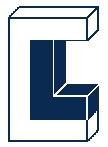ICCL/ICCL: Unterschied zwischen den Versionen
Ilja Shmelkin (Diskussion | Beiträge) |
Ilja Shmelkin (Diskussion | Beiträge) |
||
| Zeile 5: | Zeile 5: | ||
====The International MSc Program in CL==== | ====The International MSc Program in CL==== | ||
[[Datei:msclogo.jpg|rahmenlos|rechts|Old logo of the International MSc Program]] | [[Datei:msclogo.jpg|rahmenlos|rechts|Old logo of the International MSc Program]] | ||
In 1996, the European Network of Excellence in Computational Logic, CompulogNET, has developed a curriculum for a Master's Program in Computational Logic with the ultimate goal that the best students can study with the best experts in the field. This curriculum has been implemented in 1997 at the Technische Universität Dresden as part of an initiative of the Bundesministerium für Forschung und Technology (BMFT) and the German Academic Exchange Service (DAAD) to strengthen international study programs at German universities. The International MSc Program in Computational Logic was funded by the DAAD from 1997 until 2002. It is an accredited and internationally recognized Master's Program focusing on Computational Logic. It is also a part of the European Master's Program in Computational Logic. | In 1996, the European Network of Excellence in Computational Logic, CompulogNET, has developed a curriculum for a Master's Program in Computational Logic with the ultimate goal that the best students can study with the best experts in the field. This curriculum has been implemented in 1997 at the Technische Universität Dresden as part of an initiative of the Bundesministerium für Forschung und Technology (BMFT) and the German Academic Exchange Service (DAAD) to strengthen international study programs at German universities. The International MSc Program in Computational Logic was funded by the DAAD from 1997 until 2002. It is an accredited and internationally recognized Master's Program focusing on Computational Logic. It is also a part of the European Master's Program in Computational Logic. | ||
Version vom 17. März 2015, 13:51 Uhr
ICCL: Algebra, Logic, and Formal Methods in Computer Science
Computational Logic in Dresden
The International MSc Program in CL
In 1996, the European Network of Excellence in Computational Logic, CompulogNET, has developed a curriculum for a Master's Program in Computational Logic with the ultimate goal that the best students can study with the best experts in the field. This curriculum has been implemented in 1997 at the Technische Universität Dresden as part of an initiative of the Bundesministerium für Forschung und Technology (BMFT) and the German Academic Exchange Service (DAAD) to strengthen international study programs at German universities. The International MSc Program in Computational Logic was funded by the DAAD from 1997 until 2002. It is an accredited and internationally recognized Master's Program focusing on Computational Logic. It is also a part of the European Master's Program in Computational Logic.
The European Master's Program in CL
The European Master's Program in Computational Logic is one of the 19 European Master's awarded by the Erasmus Mundus Program. The Erasmus Mundus Program is a co-operation and mobility program in the field of higher education which promotes the European Union as a centre of excellence in learning around the world. It supports European top-quality Master's Courses and enhances the visibility and attractiveness of European higher education in third-countries. It also provides EU-funded scholarships for third-country nationals participating in these Master's Courses, as well as scholarships for EU-nationals studying in third-countries.
The International Center for Computational Logic
In October 2003, the International Center for Computational Logic (ICCL) was founded at TU Dresden. It is an interdisciplinary center of competence in research and teaching in the field of Computational Logic, with special emphasis on Algebra, Logic, and Formal Methods in Computer Science.
